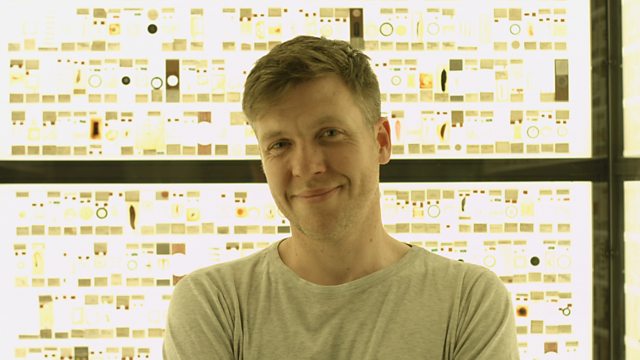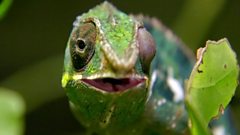Eye to Eye
Evolutionary biologist and comedian Simon Watt wonders if we could upgrade our wonky human body, with a little help from the animal kingdom.
Evolutionary biologist, comedian, and aspiring Dr Frankenstein Simon Watt is on a quest to improve the human body, with a little help from our animal cousins. In each episode he turns his imaginary scalpel on a different human organ and wonders if we wouldn’t be better off with something slightly different – the skin of a cuttlefish for example, or the guts of a vulture!
Our eyes are our window on the world - sunsets and rainbows would be nothing without them. But both sunsets AND rainbows would look a lot more impressive through the eyes of the Peacock Mantis Shrimp. Amanda Franklin from the University of Melbourne explains that this small stomatopod has the most complex eye in the animal kingdom; they don't just see more colours than us, they also see polarised light better than any other animal on earth.
If colour's not your thing, how about seeing a long way? Graham Martin, Emeritus Professor of Avian Sensory Science at the University of Birmingham introduces us to the king of visual acuity: the Eagle. To spot your prey over vast distances, AND snatch that prey up with pinpoint accuracy, you need astonishing long-range and short-range vision, and Eagles have both. They have two fovea, one for long distance scanning, one for up close grabbing, and can switch elegantly between the two.
"Keep an eye on it", we say. Just one eye. As if that's possible. Well for the Common Chameleon that's no bother at all. The rapidly swivelling gun-turrets of the chameleon's eyes move independently, processing two separate views of the world at the same time. Useful for keeping track of bugs you might like to eat. Or your wayward children. Hadas Keter-Katz from the University of Haifa breaks it down.
A ����ý Audio Bristol production for Radio 4, Produced by Emily Knight
Last on
Clip
-
![]()
The spectacular eyes of the chameleon
Duration: 01:56
Broadcasts
- Tue 27 Jul 2021 09:30����ý Radio 4
- Tue 27 Jun 2023 13:45����ý Radio 4


